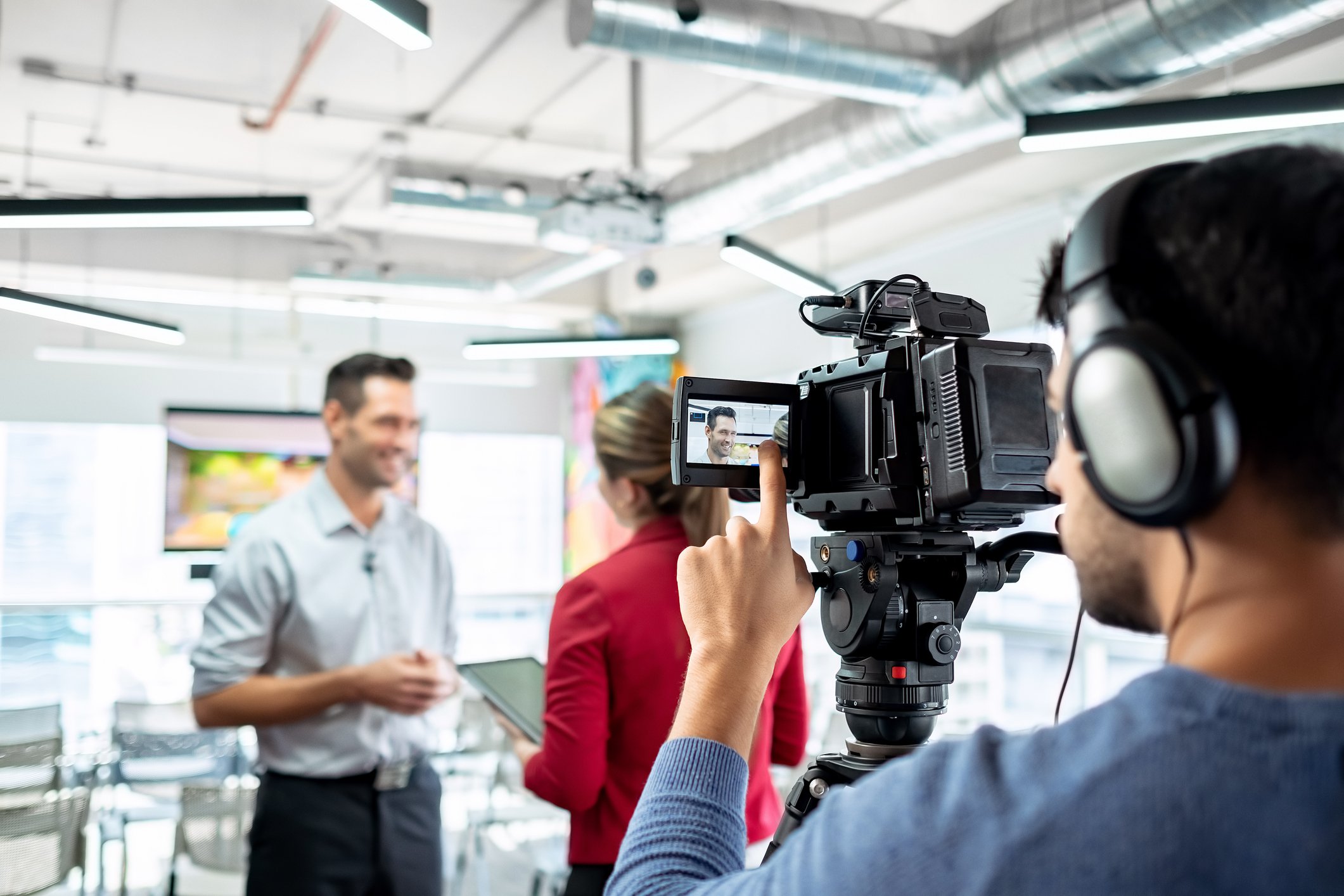Length: 7-minute read.
Quick Summary: Media interviews are a powerful way of sharing a brand’s message and can leave a lasting impression. This article looks at the importance of correctly preparing for media interviews to positively reflect an organisation’s key messaging.
Will being well-prepared for media interviews positively influence the how the message is received?
Media interviews are a powerful way to share a business’s message with new and existing audiences, so it’s important to implement effective strategies to ensure the message is received the way you intended it. When you’re speaking with a journalist, whether it’s on the phone or face-to-face, your company’s reputation is in your hands. With the correct preparation and guidance, you can turn a media interview into a chance to build credibility and authority while gaining positive attention for you and your business.
Whether proactive or reactive, the aim of an interview is to get your key messages across. Without preparation, it’s easy to forget that it isn’t a normal conversation. An interview is a transaction. If all goes well, you gain attention for your company, and the journalist gets a good story. For both parties to gain something from this transaction, a journalist needs solid, quotable information to include in their piece. You need to convey a positive, interesting, and accurate image of your company.

Although described as a transaction, media interviews are not designed to directly sell a product or service. Instead, they should offer value and insight into what your business does. This can be a tricky balance so it’s important to be prepared. Avoiding the pitfalls involved in speaking with media is easy when you know how. Just like an athlete, as a company spokesperson, you’ll need to train and practice diligently so you can perform at your peak for the ‘big game’.
Gaining insight and understanding on how to prepare for media interviews with Write Away Communication provides invaluable benefits for ongoing successful media interviews. Write Away Communication helps its clients prepare for media interviews every day.
Here are three of the most common questions we get about interview preparation:
Q1. What are the key steps for interview preparation?

Step 1 – Understanding your messaging
Having a clear understanding of what your goals are and what you hope to accomplish is your messaging is vital. This creates confidence to present in a calm, clear and coherent way. It’s important to keep the key brand messages positive and impactful to resonate with the audience.
Step 2 – Keep answers simple
In these environments, the audience is looking to digest the information quickly, so it is essential to keep your answers short, simple and to the point. If you take too long to respond, use too much jargon or too many filler words such as ‘um’, you will lose the audience’s attention. Short, clear responses drive the key messaging and ensures you are in control.
Step 3 – Stay in control
Preparing for a media interview helps you to calmly handle questions intended to provoke or create an untrue narrative. Preparing and knowing how to get the focus back to the key messaging is important.
Step 4 – Always practice
Practice is the best way to convey your messaging clearly and confidently. Preparation and practice take the pressure off and help to generate a positive impression.
Q2. If I’m feeling confident on the topic, do I still need interview preparation?

While you may have a confident grasp of what you want to say, you can’t predict how prepared the journalist is. Australian journalists will rarely be happy to simply take dictation. It’s likely that a journalist has researched you, your company, and contextual trends, and will arrive with specific questions and an agenda.
If you want to achieve a positive outcome from the media interview, you will need to make sure that:
- you have an interesting and newsworthy story to tell
- you can tell your story in an engaging and confident manner
- you have an answer for any question, even if it’s a polite redirection to someone else in your company.
Preparation for is a non-negotiable step when aiming for a successful media interview.
Q3. What are the positive outcomes of interview preparation?

A successful media interview can provide press coverage that reflects positively on your business, advances the conversation while building that much-needed trust and credibility. To put it bluntly, this is unlikely to be the result if you aren’t prepared.
Preparing for interviews ensures:
- you are less likely to be blindsided by an unexpected question
- you will be more knowledgeable, confident, and trustworthy
- you will be able to provide correct and complete answers.
Preparation is the key to interview success
When done correctly, media interviews are a great opportunity to share your business’s messaging and have your voice heard. Having a positive media appearance is likely to create a lasting impression. Strategic preparation ensures your interview will be polished and the key messages are refined and well communicated.
Remember: you can’t dictate the words a journalist will publish, nor can you check or approve their work. Only by preparing carefully for an interview can you maximise your chances of positive coverage.
For more information on preparing for interviews, or to book a media training session, contact us today.










